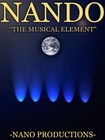

HARD WORKING
PROFESSIONAL
CAN DO ANYTHING WHEN I PUT MY MIND TO IT
VOCAL AND INSTRUMENT RECORDING
MIXING
ENGINEERING
MASTERING
Music Productions Consulting
You want your CD to sound perfect. You want fans to love it as much as that record that's been their favorite since they were a teen.
To have the best recording experience and maximize the quality of your recording, read on.
Setting goals. Envision what you want to achieve through releasing your own CD. Sit down with your bandmates or manager and
establish realistic goals. Do you want a CD just to sell at gigs? Do you want to use it as a demo to shop your act to record labels?
Do you just want to showcase your newest songs? Do you want the CD distributed throughout the country? The world? Maybe you want just
50 copies for family and friends? Your answers to these questions will help determine your budget.
Budget. Start by deciding how much you can spend on the entire project. Do you want to spend more on the studio or the manufacturing?
Of course the sound is important, but if the package doesn't look professional and worthy of peoples hard-earned cash, they won't buy
it and start grooving to the sounds inside. A general rule: the more you want to get out of your release, the more you should invest in it.
If you just want the CD to help you earn a little extra money at gigs, you don't have to sell the cattle ranch for a
major-label-quality recording.
Count on spending about $500 or more per tune in the studio for radio-ready sound. Playing live with no overdubs will obviously save
some money, as will synth-heavy songs which can be programmed at home.
Many studios will help you produce your project. Communicate your vision of the finished product to potential producers or engineers.
Do you want it polished like a classical CD, or gritty like the latest offering from Seattle? Do you want an engineer who will try to
change your bands sound or just mimic a live performance? Do you want a hands-off producer, or one who will make suggestions about song
structure and lyrics? If they can't give you some samples of their work to listen to, ask to be referred to some of their past clients.
Decide if you want analog or digital, or a combination of both. Analog is generally more expensive, but many artists prefer it for its
warmth. Ask studios what they offer and recommend.
Many studios will negotiate price. Don't be afraid to ask. Some studios give discounts if you are booking a lot of time or are willing
to record during less popular hours (usually before 5 p.m. on weekdays). If you are a very promising band, then a producer or studio
owner may be willing to take less cash in exchange for permission to use the band in an advertising promotion or to get points if the
album gets picked up by a label. Be wary of the latter--it could be like selling your soul if the band makes it big.
Preparing to record. When you're recording in a studio, you generally pay by the hour, and the meter is always running--it's a pricey
spot for brushing up on your material. Keep a lid on costs by knowing the material inside and out. Spontaneous energy is one thing, but
not knowing the verse-chorus transition is another. Make sure all sequenced material is fully prepared and the drummer is experienced at
playing to a click track.
To iron out the kinks, record your band during gigs and pre-production rehearsals. Even a simple cassette recording on a boom box may
reveal weak parts of songs. Borrow or rent a four- or eight-track for a more accurate picture of how each song will sound in the studio.
Your minds eye may view a line as catchy or a solo as exciting, but your ears may expose them as trite and bland. Better to discover this
now than in an $80-per-hour studio.
When booking blocks of time, schedule enough time to record each part and try to stick to it. Count on (and budget in) unforeseen delays.
If you plan to have a four-song EP, prepare six songs just in case. If you want to end up with ten songs, prepare fourteen. You never
know which songs will not sound strong on the final tape--a live favorite may fall flat in the studio. When you're finished in the studio,
you may want to play the tape for some fans, local DJs, and music critics to get their opinions on which songs work best.
Take care of your body before and during your recording sessions. You want your voice and playing to be in top form, especially
when you are paying by the hour. So eat well, get enough sleep, and keep your ears rested and clear. If your ears are ringing and
you're tired from last nights gig, it's probably not the best time to record.
Once you've found the best studio for your budget and whipped your band into shape to make the most of the recording sessions.
Here are a few things to keep in mind once you hit the studio.
In the studio. Depending on whether your studio has 16-, 24-, or 48-track capability, plan out how you'll split them up. You don't
want to fill up all the tracks before adding that essential piano part.
Compare recording your instruments direct versus mincing the amps. You'll often want a mix of the two, depending on the instrument
you're recording. Hopefully your studio will have a variety of mics to choose from and the engineer will understand the subtle
differences between them. Try each one yourself and decide.
Remember that you may want to consider double tracking some of the parts. Vocals, especially, benefit from the fat sound this can provide.
Remember that the second (or third) part can be softer than the lead track for a neat effect.
Create a comfortable, relaxed atmosphere for the band. That may mean lowering the lights, lighting incense, or shooing away
everyone not involved in that take. If you don't feel comfortable in the studio, it will come through on tape.
Get the sound you want while recording. Fixing it in the mix takes more time and is not guaranteed. Get it right
from the start. Do avoid over-using compression and EQ, however. You can always add these later, but they're difficult to take away.
If you mess up a part while recording, don't necessarily stop and start over. That can easily cause you to burn out. Simply keep going
and then re-record the mistakes and punch in the correction. Don't always push for perfection in every track--it's easy to get burned
out and lose the excitement. Most artists these days don't want to sound sterile--the overall vibe is more important.
Play back. Keep in mind that studios often have expensive speakers that sound superb. In addition, everything sounds better loud.
Listen to the music at moderate levels, which is how many of your fans will be hearing it. And check that the most important parts
are audible even when its soft. You need to make sure that your music sounds good on an average speaker system, a car stereo, or a boom box.
Bring copies of your favorite music to the sessions as a touchstone. Compare them to what you are recording for ideas on sounds,
stereo effects and, especially, for final mix down. You get so wrapped up in your own music during the recording process that it's
easy to lose sight of what it may sound like compared to other records.
The master tape. Decide which format you want the finished, mixed down master to be in: DAT, one-off CD, PMCD, reel-to-reel tape, or 1630.
Many manufacturing plants such as Disc Makers can offer discounts when you supply a 1630 or PMCD master, but the studios usually charge
you more for those formats. See which master format is the most practical and economical for you. In general, DAT is the most economical
and versatile way to go.
When you leave the studio with your pride and joy, you may feel like the finished recording doesn't sound quite as good as a major label
release. This is frequently unavoidable. After all, major label acts often spend hundreds of thousands of dollars in the studio, while you
spend 10% of that. Keep in mind that while musicians are audiophiles, most music listeners are not. Many of your fans wont notice a sonic
difference between your CD and Aero smiths. Don't spend a dollar you don't have for a dimes worth of difference in the finished mix.
Song Info
Track Files
Story behind the song